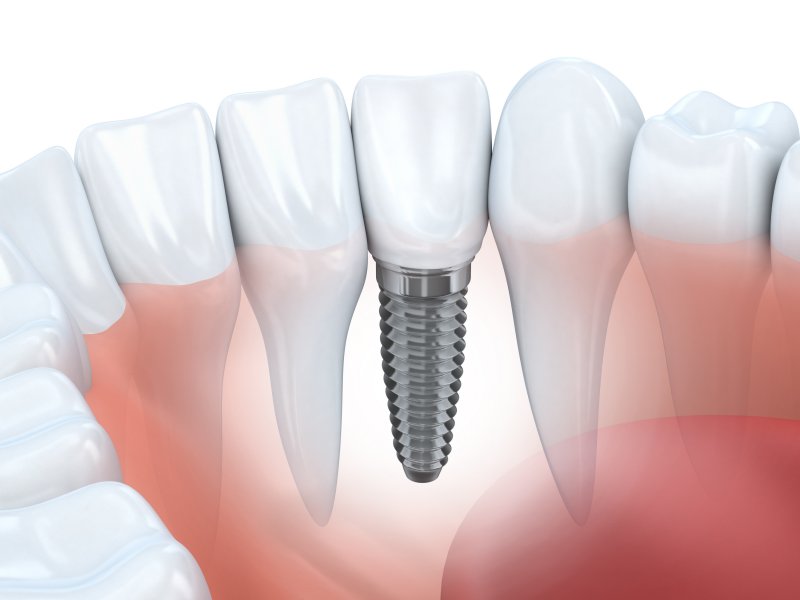
Whether it’s due to serious trauma or severe decay, there are many reasons a tooth extraction may be necessary. Though this may improve and protect your dental health, it’s crucial to restore the gap in your smile afterward. If left untreated, you could end up at risk of experiencing further tooth loss and changes in your facial structure. One of the best ways to fill in the gaps is with dental implants. But how long will you have to wait until you can restore your smile? Keep reading to learn what to expect when getting dental implants after a tooth extraction!
When Can You Get Dental Implants After a Tooth Extraction?
While it’s rare to be able to receive these restorations on the same day as a tooth removal, you’ll generally have to wait at least 10 weeks. An extraction is a major oral surgery, so you’ll need plenty of time to heal properly and to ensure there aren’t any underlying issues before getting dental implants. To get an accurate estimate of the timeframe, it’s best to consult your oral surgeon. By considering factors like the position of the tooth and any developing infections, they’ll be able to determine how soon you can get your restorations placed.
Are Dental Implants Worthwhile?
Unlike other traditional restorative treatments, such as dentures and dental bridges, dental implants will be surgically embedded into your jawbone. Instead of relying on natural suction with your gums or any remaining teeth, your pearly whites will be anchored to your new permanent roots. This will allow them to look and feel much more like a normal smile since they won’t shift out of place, and you’ll regain about 80% or more of your biting power! You can also expect your results to last 20+ years with proper oral care, which can save you money in the long run.
How to Know If You’re a Good Candidate for Dental Implants?
The only way to know if you’re eligible for dental implants is through a thorough assessment of your oral health. Your dentist will need to ensure your mouth and gums are in good condition and that you have a sufficient amount of jawbone density. Without enough strong and healthy bone tissue, your metal posts may not successfully integrate with them. Fortunately, there are restorative procedures, like bone grafts and gum disease therapy, that can address these underlying problems.
So, if you’re interested in replacing an extracted tooth with dental implants, don’t hesitate to speak with your dentist. They’ll be more than happy to evaluate your oral situation and determine how to best restore your beautiful smile!
About the Author
Dr. Wael M. Kassem earned his dental degree from Temple University and regularly seeks continuing education to expand his techniques. He’s also a member of several groups like the New Jersey Dental Association and the Academy of General Dentistry. He offers a vast selection of advanced treatments, including tooth extractions, gum disease therapy, and dental implants. If you’d like to schedule an appointment, visit his website or call 856-818-9998.




